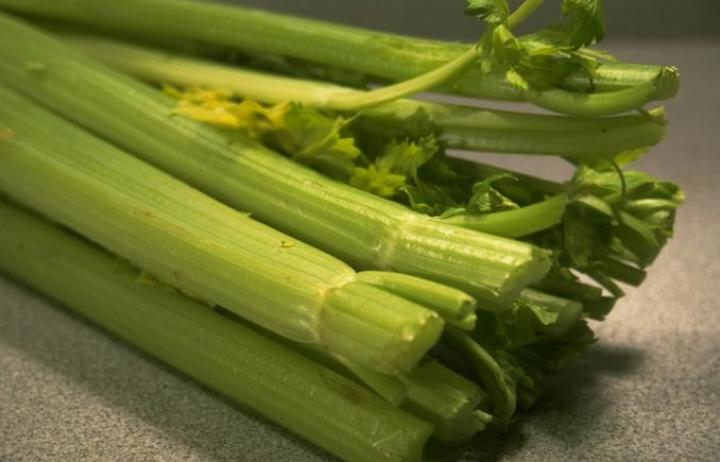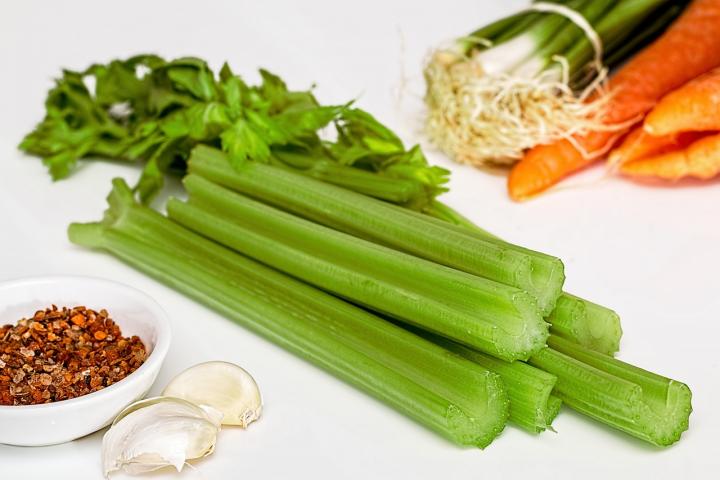






Celery. Almost every refrigerator holds a sleeve of it.
Raw, it’s a grab-and-go food, with a satisfying crunch and a handy groove for holding anything spreadable. Cooked, it imparts a delicate flavor to salads, soups, and stir-fries. And it has only 11 calories per cup. Yet it is most often described as bland, boring, watery.
Nonetheless, celery qualifies as a high-powered health food. Although it isn’t strong in conventional nutrients, it does contain dozens of phytonutrients.

Celery’s Health Benefits
• Celery is especially rich in the phytocompounds currently under study for preventing or treating several forms of cancer, multiple sclerosis, allergies, neurogenerative diseases, as well as improving learning and memory.
• Celery (and celery seed) contain compounds that may lower blood pressure.
• Celery seed has a long history of use as a healing herb. Ethnobotanist James Duke swears by it for treating his gout. He suggests steeping 1 teaspoon of freshly ground celery seeds in 1 cup of boiling water, and drinking it.
• Research has shown an extract of celery in skin preparations repels mosquitoes as effectively as 25 percent Deet.
• Alcohol extracts of celery seed may protect the liver from damaging substances.
To preserve its phytonutrients, refrigerate celery and use within a week or so of purchase or harvest, chop just before using, and steam lightly or roast rather than boil.
A Few Exceptions
Celery ranks among the most allergenic of vegetables. The experience of an itchy throat or swollen lips after eating raw or cooked celery, or an herbal product containing celery seeds, may be “oral allergy syndrome,” generally mild, but occasionally life-threatening.
The celery allergy usually appears in people allergic to birch and certain other pollens, and the reaction to celery or its leaves or seeds may be most pronounced while the offending plants are pollinating.
Interesting in growing celery in the garden? See our Celery Growing Guide.
~ By Margaret BoylesMargaret Boyles lives in a wood-heated house in central New Hampshire. She grows vegetables, keeps chickens, swims in a backyard pond in summer, snowshoes in the surrounding woods in winter, and commutes by bike whenever possible.
Roses becoming very leafy and not flowering
JFK buds brown and not opening
Frugal Gardening: How to Recycle your Old Onions and Celery
Self Storage Units Are Not Just For Junk And Unwanted Items
The Color and the Plant: Whats not to Love about Lavender?
Not Your Everyday Perennials: Bowmans Root and Silver Thistle
Copyright © www.100flowers.win Botanic Garden All Rights Reserved